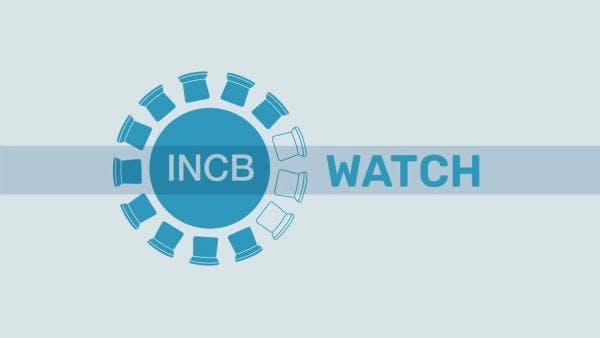INCB invokes the flexibilities of the UN drug control treaties to stop punishing drug users
At the occasion of the 114th INCB Session, INCB President Werner Sipp declared that: “the treaties do not require the incarceration of drug users, but rather provide for alternatives to conviction or punishment for those affected by drug abuse, including treatment, education, after-care, rehabilitation and social reintegration. That some countries have chosen incarceration rather than treatment has been a denial by Governments of the flexibility that the treaties provide”.
In its Annual Reports, the INCB has often been critical of decriminalisation or any non-punitive measures towards people who use drugs. This statement from the Board’s President is therefore a positive step which we hope will pave the way towards the endorsement of decriminalisation for people who use drugs, following similar calls from other UN agencies such as UNAIDS, WHO, UNDP, UN Women and others.
The statement is also encouraging at a time when governments are discussing global drug policy and options for reform in the lead up to the 2016 UNGASS.
Keep up-to-date with drug policy developments by subscribing to the IDPC Monthly Alert.
Thumbnail: Prison of Buen Pastor, Bogota, Colombia. Copyright: Adam Schaffer
Topics
Regions
Related Profiles
- International Drug Policy Consortium (IDPC)
- International Narcotics Control Board (INCB)
